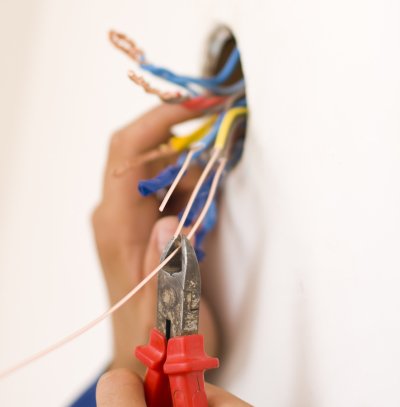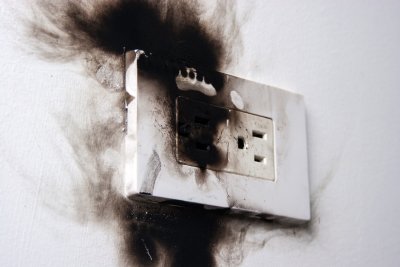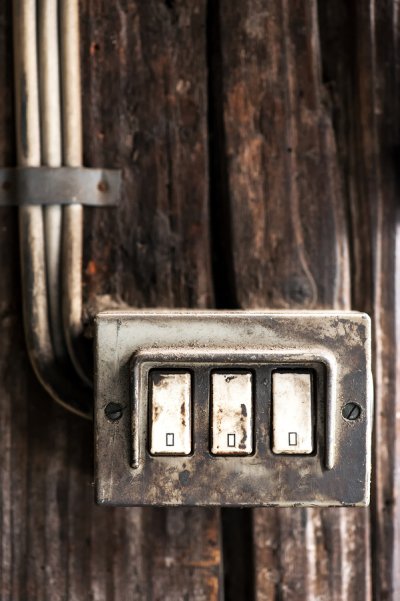-
Why You Need a Professional for Wiring Conversion
Being a homeowner is a big responsibility. However, just because you’re responsible for your home doesn’t mean you have to perform every maintenance and home improvement job yourself. If fact, there are many instances in which it’s more responsible to let a professional do the job. For example, converting your home’s wiring is best performed by an electrician serving San Jose .
Wiring is dangerous work. Fortunately, professional electricians have thousands of hours of training, and know precisely how to complete wiring conversions without injury to themselves or damage to your property. Why put yourself at risk when you can leave the job to a team of seasoned professionals? Hiring trained, licensed, and insured experts to convert your aluminum wiring to copper is the only way to ensure that the job is done absolutely right. Also, your homeowner’s insurance company will likely insist that the job is done professionally—your home’s wiring is too important to be left to anyone who doesn’t have the requisite training and experience.

-
The Importance of Arc Fault Circuit Interrupters
As a homeowner, you want to make your home as safe as possible for yourself and your family. As you look around your home, you might assume that you’ve already achieved maximum safety. However, one of the greatest potential risks is out of sight: the electrical system behind your walls. Fortunately, maximizing the safety of your electrical system is as easy as calling an electrician in San Jose . If you haven’t already, you should have a professional install arc fault circuit interrupters (AFCI) throughout your electrical system.

Arc Fault Basics
Under normal circumstances, electricity should travel safely throughout your home via electrical wires, or conductors. An arc fault occurs when electricity travels outside of safe conductors. A big enough arc could ignite insulation or another flammable part of your home, contributing to a disastrous electrical fire; in fact, arc faults are among the leading causes of electrical fires in this country. The older the wiring, the higher the risk of arc faults.
How AFCI Breakers Work
An arc fault circuit interrupter is designed to detect a dangerous electrical arc and promptly interrupt the circuit before a fire can ignite. When an arc fault occurs, it creates a sharp spike and drop that is easily detectible by an AFCI breaker. However, an AFCI breaker is sophisticated enough to tell the difference between a safe, normal arc and a potentially harmful arc fault.
Why They’re Important
Traditional circuit breakers are also important for electrical safety, but they alone cannot protect from electrical fires. A circuit breaker will only interrupt a circuit in the event of a short circuit or overload, and cannot detect an arc fault. AFCI breakers are so important that the U.S. electrical code now requires them in most newly constructed dwelling units. If your home has old wiring and does not yet have AFCI breakers, consider speaking with an electrician in San Jose. AFCI breakers are generally inexpensive and easy to install.
-
What Is Whole House Surge Protection?
A power surge is bad news for any homeowner. All it takes is one big electrical fluctuation to completely fry your computer or any of your vital home appliances. The best thing you can do is protect your belongings with surge protection. In fact, you might consider investing in whole house surge protection.
This video from Angie’s List recommends purchasing power strips for your computer and other valuable electrical devices. When looking at power strips, however, be sure to focus on the ones that offer warranties for damaged items. For ultimate protection, consider asking your electrician in San Jose about whole house surge protection. This type of protection is installed in the areas where electricity comes into your home, and prevents sudden fluctuations in power from causing serious damage.
-
Problems with Aluminum Wiring
When it comes to home wiring, copper is the gold standard—or more appropriately, the “copper standard.” However, the price of copper has fluctuated over the years, whereas aluminum has remained rather low. For this reason, there are many buildings that have aluminum instead of copper for their wiring. Aluminum was thought to be an acceptable alternative in the 1960s and 70s, but has since been discovered to be subpar. If you have aluminum wiring in your home, consider having an electrician in San Jose to replace it for you.

Less Effective Conductor
Though aluminum is less expensive than copper, its composition makes it a less effective conductor. For this reason, you need to use more aluminum in order to achieve the same amperage. Aluminum is also less ductile than copper, which means it is more likely to break down when drawn into thin wires and bent. Aluminum is more malleable than copper, and thus more sensitive to compression. The areas that get compressed have more electrical resistance, which is not what you want from a wire that’s supposed to conduct electricity.
Faster Deterioration
Copper is more resistant to corrosion than aluminum. If aluminum is exposed to moisture and certain kinds of metals, it will undergo something called “galvanic corrosion,” which is bad news for an electrical wire. Also, aluminum wire is more easily oxidized than its copper counterpart, and oxidization can seriously compromise important connections, which can in turn cause a fire hazard.
Potential for Loose Connections
Tight, secure connections are important for electrical functionality and safety. Unfortunately, aluminum wire behaves in such a way that sometimes makes it difficult to hold a connection. As mentioned above, oxidation is part of the problem. Another problem is that aluminum expands and contracts with temperature changes, and vibrates more than copper when an electrical current passes through it. Over time, these changes in size can cause aluminum to be separated from its connections, rendering it ineffective and unsafe.
RECENT POSTS
categories
- Uncategorized
- Delta Electric
- Commercial Electrical
- Residential Electrical
- Electric Circuits
- Dedicated Circuits
- Circuit Breakers
- Electrical Panels
- Electrical Wiring
- Safety Inspections
- copper wires
- Electrician San Jose
- Trained Electricians
- Electrical Services San Jose
- Malfunctioning Electrical Outlets
- Circuit Breaker
- Grounding
- safety
- Flickering Lights
- Arc Fault Breakers
- electrical system
- Aluminum Wiring
- Circuit Interrupters
- House Surge Protection
- Zinsco Panel Warnings
- Wiring Conversion
- GFCI outlet
- professional electrician
- Knob-and-Tube Wiring
- modern home electrical system
- Fuses
Archives
2025
2024
2023
2018
2017
- December (4)
- November (4)
- October (5)
- September (4)
- August (4)
- July (4)
- June (4)
- May (4)
- April (4)
- March (3)
- February (4)
- January (3)
2016
- December (3)
- November (4)
- October (4)
- September (4)
- August (4)
- July (4)
- June (4)
- May (4)
- April (4)
- March (4)
- February (4)
- January (4)
2015
- December (4)
- November (4)
- October (4)
- September (4)
- August (3)
- July (4)
- June (4)
- May (3)
- April (4)
- March (4)
- February (2)
2014
- December (3)
- November (4)
- October (4)
- September (6)
- August (2)
- July (3)
- May (2)
- April (1)
- March (2)
- February (1)
- January (1)

